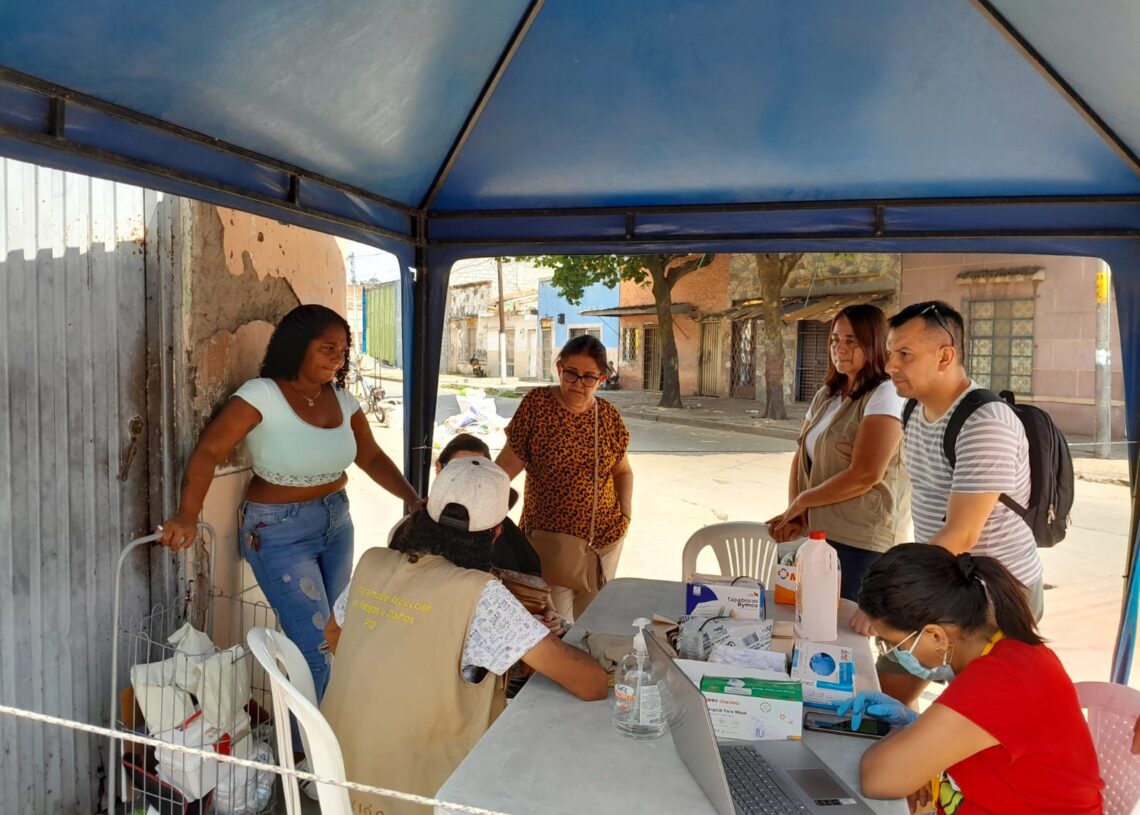Drugs constitute a major social and public health problem, in some cases with repercussions not only for the people who use them, but also for their families and communities. The impact caused by problematic drug use mostly affects socially vulnerable groups and reinforces inequalities, all of which calls for intervention strategies in the populations most exposed to these risks.
One of the objectives of COPOLAD III is to promote the exchange of best practices in this area, with actions that mitigate harm and prevent drug use through rehabilitation, education of young people, social integration and voluntary access to treatment.
Within the framework of this objective, and as part of a COPOLAD action, representatives of Chile’s National Service for the Prevention and Rehabilitation of Drug and Alcohol Consumption (SENDA) conducted a technical and field visit in December 2023 to learn about two community treatment initiatives in the cities of Cali and Bogota (Colombia), where drug harm reduction strategies are being implemented. Based on the information obtained, the SENDA team will design a pilot project for a community approach to this problem to be implemented in 2024. The visit was carried out with the support of the Colombian Ministry of Justice and Law.
Civil society orgnizations
On this occasion, the Chilean delegation – composed of Francisca Alburquerque, head of the Area of Detection and Brief Interventions in the Community, and Pablo Müller, a professional from the Social Integration Area of the Program Division – visited two community treatment facilities that apply the technical proposal that Colombia has developed to address drug use in a highly socially vulnerable population.
Exchange with civil society working in the territory
The first of these initiatives is the Procrear Foundation‘s Listening Center in Bogotá. In close alliance with community organizations in the area, the Center carries out preventive, treatment and social inclusion interventions. These interventions are based on the needs of the local population and, in recent times, have been aimed primarily at the migrant population, LGTBIQ+ people and women victims of gender-based violence.
The second facility visited by SENDA representatives was the Viviendo Corporation in Cali. Located in the Sucre neighborhood, Viviendo develops various harm reduction strategies with a population that predominantly consumes injectable drugs (heroin) and is in a street situation. They are also working hard to generate alliances with community leaders in the neighborhood to support the program’s work. There was also an opportunity to learn about the work carried out at the Listening Center in the Potrero Grande neighborhood, which incorporates a component of economic social inclusion, aimed at vulnerable women and aimed at achieving their autonomy and empowerment.






